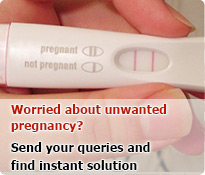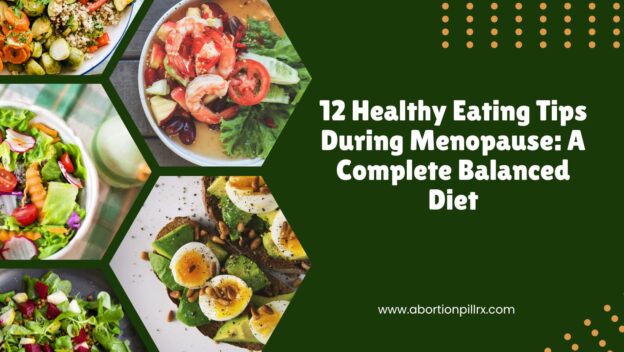There may be a relationship between abortion and menopause nutrients. Menopause is a natural biological process that happens when your menstrual cycle comes to an end permanently. It could occur to women aged between 45 – 50, mostly in their 50s.
Menopause is one of the three times a woman’s body experiences a drastic change, the other two being puberty and pregnancy. During menopause, the body goes through severe changes, some familiar, some unfamiliar. These changes may put your body at the risk of unwanted diseases.
In this blog, we will explore the concept of menopause and know how the history of abortion and menopause nutrients can affect an individual’s body and also the balanced diet for menopause.
What is Menopause?
Menopause is a natural biological process, where your menstrual cycle comes to an end permanently. Every woman goes through this in their mid-forties to fifties, it’s the law of nature.
There are 3 stages of menopause: Perimenopause, Menopause, and Postmenopause. The changes that occur during menopause, can cause many complications for a woman.
Overcoming the implications that come with the changes is crucial and that can be done with the help of a balanced diet for menopause.
A Balanced Diet for Menopause
A balanced diet for menopause is a need of the hour. When a woman’s body goes through menopause it starts losing nutrients, the bone becomes weak, and they may experience hot flashes in their upper body.
All this could be taken care of, if there’s a proper intake of all the nutrients, from proteins to healthy fats, maintain a proper sleep pattern, practice regular exercise, and everything will be back to normal.
There are proven studies that show certain foods can decrease the chances of disease and postmenopause symptoms like weaker bones, hot flashes, and insomnia.
Following are the tips to eat healthy during menopause:
- Eat Proteins
First and foremost, eat your proteins. Proteins are essential and helpful for the body to function properly. It improves your bone strength and muscle mass. Beans and legumes, eggs, and salmon are a good source of protein, easily available too.
- Eat Dairy Products
Dairy products like milk, cheese, and yogurt provide the body the much-needed minerals and vitamins. Important nutrients like calcium, magnesium, potassium, Vitamin D, and K are all present in dairy products, so have, any of them in a day. Regular intake of milk could be a good choice.
- Portion Size
The portion size of your food matters. Taking small portions of food can be very beneficial for the body during menopause. It will help you increase your metabolism and restrain you from gaining weight.
- Add Green to Your Diet
Eating greens is better any day. Green vegetables like cabbage, broccoli, and kale can help with the reduced estrogen level in the body during menopause.
- Add Whole Grains to your diet
Whole grains like wheat, brown rice, oats, quinoa, and many more could help during menopause.
- Eat Nuts & Seeds
Daily intake of a handful of nuts can turn out to be very beneficial. They are a good source of Omega-3 fatty acids, which can help reduce the symptoms of hot flashes and mood swings.
- Drink Fluids
If you feel like you are hungry even after eating, try drinking fluids, you might just be thirsty. Hydration during menopause is of utmost importance, keep drinking water 24 hours a day. Water has all the nutrients, minerals, and electrolytes that our body and brain need.
- Healthy Fats
Healthy fats are the major nutrient providers to the body during menopause. Healthy fats include fatty fish, chia seeds, flax seeds, and avocados. They help in decreasing the severity of symptoms at the time of menopause.
- Less Consumption of Processed Foods
Processed foods consist of all salts and sugar in high quantities, both of which are harmful to the body before, during, or after menopause. So make sure you consume less of these foods.
- Eat Only 80%
It is a proven fact that eating only 80% can be very helpful. It means stop eating when you get a feeling of satisfaction, do not go full tummy.
- Eat Slowly
Eat slowly and carefully. Take time to chew your bites and be mindful of what you eat. Eating slowly can increase your metabolism, and stop you from gaining weight.
- Consult Your Nutritionist
All these tips come from a nutritionist, so make sure you consult with your nutritionist. He will recommend you the best-balanced diet based on your medical history and conditions if you have any.
It is said that if a woman has an abortion history it can deeply affect her health during menopause. Women with abortion history, some who have consumed abortion pills are most likely to fall prey to perimenopause, before the age of 45, which is very harmful. So if you have ever administered abortion pills, consult your healthcare provider and nutritionist.
Conclusion
Above we have mentioned all the tips and foods to eat during menopause to maintain your overall health. We are not the experts on this topic, but all the information provided above are results from studies conducted by the experts.
But we advise you to consult a nutritionist before starting your balanced diet for menopause.



